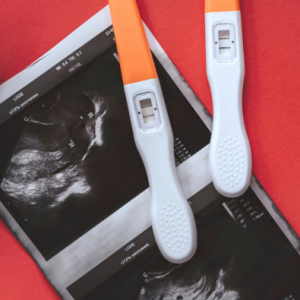In the last Let's Share Series by I Love Children held on 17 March 2021, we invited Dr Janice Tung, Consultant O&G at Thomson Fertility Centre, to answer questions on fertility during the 30-minute lunchtime webinar.
Here are the answers to questions that were unanswered during the session:
1. Is it normal for my husband's sperm to leak out of my vagina after intercourse? Is that why it's so hard to get pregnant?
That is normal. It’s fine as long as he ejaculated inside your vagina. You may lie down for at least half an hour after intercourse before getting up. If you are finding it difficult to get pregnant, see a gynae to get a basic assessment.
2. I have spotting 7 to 10 days before the first day of my menstrual cycle. Is it due to uterine polyps or low progesterone level?
These can be easily assessed with a scan and blood test if you are concerned. A scan for uterine polyps should be best performed some time in the second week of a regular monthly cycle after menstruation and before ovulation.
3. Is it still safe for us to continue trying while I'm spotting during my ovulation?
Yes, certainly.
4. What is advisable for couples of older age (age 36 and above) trying for their first child?
Get a basic assessment first and some advice regarding how and when to try, and a review of your lifestyle and dietary factors, menstrual cycles, as well as any supplements. Settle on a timeframe to continue trying naturally, if no specific treatment is recommended. If there’s no news after a while (6 months to a year) of trying hard, couples should consider pursuing a further course of action, whether it’s IUI or IVF treatment options.
5. I have PCOS and I am on metformin. I also have difficulties losing weight. Are the chances of me conceiving slimmer? What can I do?
Certainly, if PCOS is resulting in you not ovulating. Increased body mass index is also associated with greater difficulty in conceiving. As such, you need to look at losing some weight (you don’t have to be stick-thin, even a 5kg weight loss may help). Of course, PCOS is also associated with some metabolic disturbances, and that would require more effort on your part to lose weight compared to the average person. The dosage of your medications may be reviewed and you may discuss with your gynae regarding specific ovulation treatment plans.
6. Is it recommended to go for a fertility check if I'm almost 40 and trying for the first baby? What does a typical fertility check consist of?
Yes, most definitely. A typical basic fertility check consists of 1) a comprehensive history from both wife and husband to review any prior medical conditions, lifestyle and dietary factors, your menstrual cycles and frequency of lovemaking; 2) some blood tests to look at your hormonal profile, including a thyroid hormone screen, to assess the hormonal communication between your brain and ovaries, 3) an assessment of whether you are ovulating, 4) an ultrasound scan (usually done with a probe inserted into the vagina) to look at the womb and ovaries to see if there are any issues such as fibroids, polyps and cysts that may affect your chances of pregnancy, and 5) a semen analysis to look at the sperm count, movement and appearance. If there’s difficulty in achieving penetrative sexual intercourse, that may also be addressed.
7. I have a history of endometriosis cyst, have undergone surgery in 2017. I have been trying to conceive for approximately 1.5 years now, does having a history of endometriosis affect conception? Should I go for a fertility check?
Yes, ladies with endometriosis have lower chances of conceiving whether they are trying naturally, or during IUI or IVF cycles. The best time to try and conceive generally is within a year of the surgery. I would most certainly advise going for an assessment at this stage.
8. Do you ovulate 12, 36 or 48 hours after testing positive on the ovulation kit? Is there a time of the day for ovulation to occur?
It is difficult to predict exactly when ovulation occurs with the kit. There’s no specific time of the day it occurs. The general sound advice would be to have the appropriate frequency of sexual intercourse around the likely period of ovulation to ensure maximal sperm concentration around the egg at that time, whenever it occurs. Ovulation may be timed however in IUI or IVF cycles, as hormonal injections are given to trigger ovulation specifically.
9. Is there any type of food or supplement that can enhance fertility?
Generally, a fertility diet is considered to be a healthy varied diet. Ladies should ensure they are not anaemic and may be supplemented with iron. Vitamin D deficiency is also common in the population, and Vitamin D supplements may be considered. For ladies above 30 years old or with diminished ovarian reserves, additional CoQ10 supplements may be considered. For men, daily antioxidant multivitamins containing Vitamin A, C, E, zinc, selenium may be considered to aid sperm quality, and these are often found easily in men’s performance multivitamins.
10. Are there any other ways to improve sperm count other than taking q10?
Depending on the reasons for a low sperm count, general measures include keeping the testes cool, avoiding smoking/excessive alcohol/caffeine and taking daily antioxidant multivitamins. Fish oil supplements in higher doses may also help. There are other medications that your doctor may prescribe as well.
11. How many times can I go through IUI?
I generally advise couples to try up to 3 cycles, but there are centres that recommend more. It also depends on the ovarian response and sperm quality in the first one or two IUIs, you may check with your gynae whether it is worthwhile to continue pursuing another cycle.
12. How can I improve my egg quality? Does taking Co-Enzyme 10 works? In North America DHEA is allowed to improve egg quality but I can't get it in Singapore. Do you have any other recommendations?
You can most certainly get DHEA in Singapore with a prescription. Please check with your gynae, my clinic or Thomson Fertility Centre. CoQ10 is the most basic that you can try, and it may be of benefit. There’s no specific recommendation other than ensuring good lifestyle habits, avoiding caffeine, and a varied healthy diet. This is the reason why it’s important to start looking at planning for children as soon as possible if you can, and the reason why this campaign is trying to raise public awareness regarding fertility issues. To put it simply, IVF is unable to generate new eggs, it takes from what you have.
13. Does someone with an endometriosis cyst have a higher chance of fallopian tube obstruction?
Yes.
14. What are the supplements women with PCOS can buy off shelves?
Myo-inositol, folic acid, pre-conception multivitamins. Other medications such as metformin require a prescription.
15. Will taking Clomid for a long period have any side effects?
Taking Clomid for more than 6 cycles may be associated with a slightly increased risk of borderline ovarian tumours in future. Borderline tumours are tumours that are not cancers but may behave like cancer in their ability to grow and spread.
16. Will a previous varicocele surgery affect my fertility?
It shouldn’t. Whether it improves your fertility (i.e. pregnancy rates) however is controversial.
17. Will monitoring my body temperature every morning help identify my ovulation day?
Please refer to question 8 for the answer.
18. Is taking probiotics supplements safe for women who are planning to conceive, or are pregnant?
That’s fine. There’s increasing evidence to show that probiotics may help promote better vaginal flora and lower your risk of vaginal infections that may hinder conception. Ladies who are already facing problems with recurrent vaginal discharge or bacterial vaginosis may benefit.
19. What happens if after taking ovulation medicine, the eggs still doesn’t grow big. What’s next, is it IUI or IVF? What causes the eggs to not grow?
Oral ovulation medication may not work 20 to 30% of the time, so I’m not surprised. The hormonal imbalance may be too great to respond to oral medications only. In such a case, you may consider IUI or IVF, and this would require a discussion with your gynae. Treatment of the underlying hormonal imbalance, if there is, may also help augment the effects of the ovulation medications.
20. If there is an unexplained prolonged period bleeding for a 42-year-old female, is there any treatment to ensure fertility and to conceive soon after? Does Thomson treat these symptoms and what’s the cost of treatment?
Although this may be due to a hormonal disturbance that affects fertility, prolonged period bleeding at this age requires a serious urgent evaluation by a gynae to exclude possible pre-cancerous or cancerous changes of the womb lining and cervix. A biopsy of the womb lining may be required. This can usually be done via an office procedure in the clinic which may cost more than five hundred dollars, or as a minor day surgery procedure in theatre which will cost in the thousands. Yes, Thomson is able to address the issue. If fertility is desired, and a scan of the womb does not show an obvious cancer, it may be better to do a day surgery procedure in order to both assess and address any issues such as uterine polyps, as they may be removed at the same time. Thereafter, you should have a frank discussion with your gynae to address any hormonal problems and treatment plans for conceiving as soon as possible. Usually, at this age, IVF remains the fastest means of trying for pregnancy.
I Love Children thank Dr Janice Tung from Thomson Fertility Centre for her valuable input.
If you are trying to conceive and would like to join a fertility support group, consider I Love Children’s Fertility Support Group Singapore on Facebook for the much-needed peer support.



.PNG)